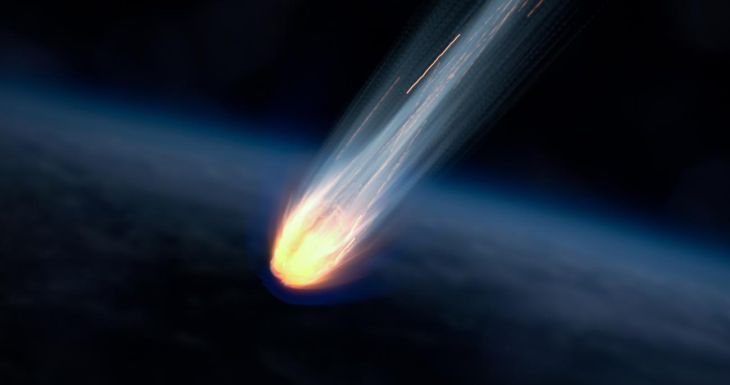- Name
- Roberto Molar Candanosa
- [email protected]
- Office phone
- 443-997-0258
- Cell phone
- 443-938-1944
Sound waves thought to be from a 2014 meteor fireball north of Papua New Guinea were almost certainly vibrations from a truck rumbling along a nearby road, new Johns Hopkins University–led research shows. The findings raise doubts that materials pulled last year from the ocean are alien materials from that meteor, as was widely reported.
"The signal changed directions over time, exactly matching a road that runs past the seismometer," said Benjamin Fernando, a planetary seismologist at Johns Hopkins who led the research. "It's really difficult to take a signal and confirm it is not from something. But what we can do is show that there are lots of signals like this, and show they have all the characteristics we'd expect from a truck and none of the characteristics we'd expect from a meteor."

The team will present its findings March 12 at the Lunar and Planetary Science Conference in Houston. Journalists can attend the presentation in person or virtually at 4:50 p.m. ET. The full session can be found here.
After a meteor entered Earth's atmosphere over the Western Pacific in January 2014, the event was linked to ground vibrations recorded at a seismic station in Papua New Guinea's Manus Island. In 2023, materials at the bottom of the ocean near where the meteor fragments were thought to have fallen were identified as of "extraterrestrial technological" (alien) origin.
But according to Fernando, that supposition relies on misinterpreted data and the meteor actually entered the atmosphere somewhere else. Fernando's team did not find evidence of seismic waves from the meteor.
"The fireball location was actually very far away from where the oceanographic expedition went to retrieve these meteor fragments," he said. "Not only did they use the wrong signal, they were looking in the wrong place."
Using data from stations in Australia and Palau designed to detect sound waves from nuclear testing, Fernando's team identified a more likely location for the meteor, more than 100 miles from the area initially investigated. They concluded the materials recovered from the ocean bottom were tiny, ordinary meteorites—or particles produced from other meteorites hitting Earth's surface mixed with terrestrial contamination.
"Whatever was found on the sea floor is totally unrelated to this meteor, regardless of whether it was a natural space rock or a piece of alien spacecraft—even though we strongly suspect that it wasn't aliens," Fernando added.
Fernando's team includes Constantinos Charalambous of Imperial College London; Steve Desch of Arizona State University; Alan Jackson of Towson University; Pierrick Mialle of the Comprehensive Nuclear-Test-Ban Treaty Organization; Eleanor K. Sansom of Curtin University; and Göran Ekström of Columbia University.















